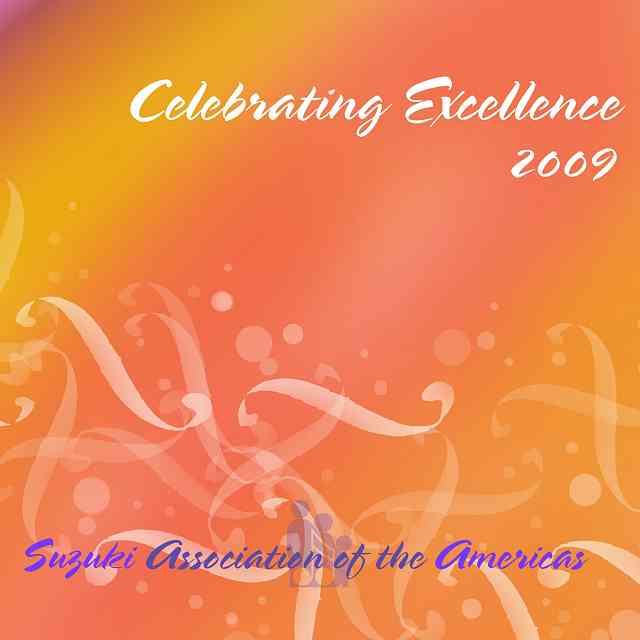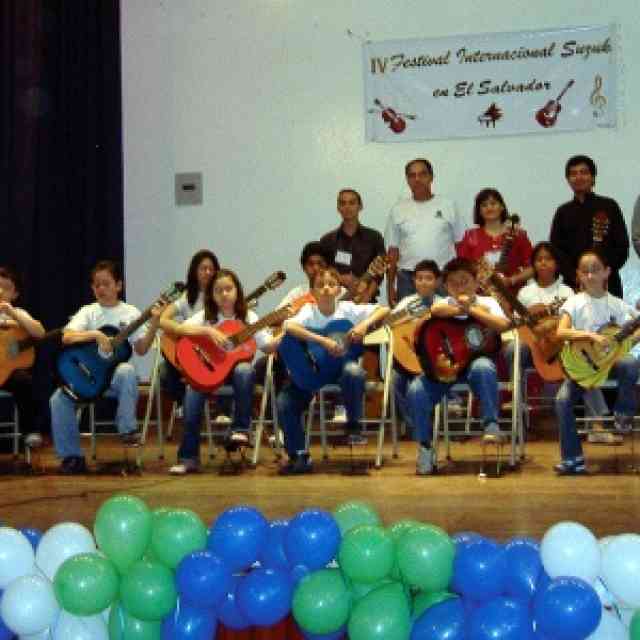By Daniela Nicolalde Rengifo
Sometimes, I feel that the things you love deeply are out there looking for you. Authentic passions and deepest dreams seem to trace a path in an almost magical way, with yourself as the destination. The best experiences and opportunities of my life have come like this: as beautiful coincidences that seem to be the work of destiny. The opportunity to write this article is a good example. It was born after I took my Suzuki Flute Unit Four practical exam, under the guidance of my teacher Kelly Williamson. This led to a conversation in which she showed interest in my musical career, and she ended up suggesting that I write this article.
For four generations, my family has been deeply connected to the arts. My great-great-grandmother played the harp; my great-grandfather, Ulpiano Benítez, was a composer. One of his most notable works is a yaravi—a traditional, melancholic song—entitled Puñales, which led to him being known as the “Lord of the Yaraví” in my country, Ecuador. My great-uncle, Gonzalo Benítez, was a singer and composer and was recognized as an important representative of our national music.
Daily experiences and a love for music have led many of my relatives to sing, compose, and play different instruments. I grew up surrounded by music and a genuine desire to express myself through it. My father, the youngest of eight children, was born in Otavalo, a small town in northern Ecuador, known for its multiculturalism, its craft market, and its environment full of lakes, mountains and the majestic volcano Tayta Imbabura.
My paternal grandmother, upon learning that my father would be her last child, decided that she would do everything she could to make him the best artist. During her pregnancy, she sang tangos and pasillos while doing housework, and she later talked to him about the music they “listened to together.” My father’s creativity and affection filled our lives with drawings, puppets, stories, and music. My father, also from an early age, showed a great passion for music. In his childhood, he was part of several folk music groups and stood out for his ability to whistle, influenced by the huiracchuro bird and by El Grupo Huayanay, an Ecuadorian folk group. This skill earned him several prizes in local competitions.
However, my first artistic expression was through literature. I was a fervent reader until one Christmas, when I was eight years old, I started writing poetry. A friend of my parents read my poems and decided to publish them in a newspaper. When he visited our family, I told him that I could fly. At Christmas, I always dressed up as an angel, and my father, to give me the illusion of flying, would take pictures of me while I was jumping, capturing the exact moment I was in the air. I showed those pictures to the interviewer, and he added to the title: “Daniela, the girl who knows how to fly.” My dad gave me wings, and every time I feel lost, my mom reminds me, “You’re the girl who can fly.” You have no idea how those words have helped me throughout my life.
In the mornings, we would listen to my mother and father sing with their guitar, performing Latin American folk and protest songs, performed by groups such as Inti-Illimani, Illapu, and Los Kjarkas. This is how my younger brother and I learned to love music and to imitate it with our recorders. Without knowing it, we received the best Suzuki training: growing up in an environment that fostered our musical sensitivity. At that time, there was no formal place to learn music, and the greatest gift that brought me closer to classical music were two CDs that arrived at my house with the purchase of the newspaper El Comercio. One contained pieces dedicated to spring and the other, ballets by Tchaikovsky. During my childhood, I did not receive formal instrument lessons, but the desire to make music with my family and constant listening to recordings led me to study it on my own, trying to imitate what I heard. I spent entire afternoons on this self-taught effort.
A few days ago, Kelly Williamson reminded me of a quote from Dr. Suzuki: “Not only is music learned from parents, but so is smiling.” And I know it’s true. My mother always reminds me, “La palabra convence, pero el ejemplo arrastra,” which essentially means “Actions speak louder than words” in English. Everything around us helps shape our perception of ourselves and our relationship with the world. It is our actions that define who we are and who we want to become. The years passed, and when the time came to decide where to direct my life, I hesitated between painting, literature, and music. My path became clear when I heard my teacher playing the piano. That is how I discovered the Luis Ulpiano de la Torre Music Institute in Cotacachi, Ecuador, the place where my training as a flutist began.
After graduating, I moved to Quito to continue my education at the Franz Liszt Conservatory, where I discovered my passion for baroque music and Bach’s sonatas, which I listened to tirelessly. Later, I received a scholarship to the Universidad San Francisco de Quito. However, when my parents faced economic difficulties, I had to look for new opportunities. Thanks to my participation in a concert at Pawkar Raymi, one of the most important folk music festivals in the country, I met my son’s father and began my career as a piccolo player. He told me about the Suzuki Method and encouraged me to take the Suzuki philosophy course in 2015. At the end of the course, he encouraged me to participate in the teachers’ closing concert with a piece of music. Although I was hesitant at first, I finally agreed. After the concert, Caroline Fraser approached me and made very positive comments, especially about the quality of my sound. These comments caught the attention of the organizers of the courses in Ecuador, who offered me the opportunity to work with them in the opening of the flute school within the PETM program of the Instituto de Investigación, Educación y Promoción Popular del Ecuador (INEPE).
Thus began a new stage in my life, where I had the opportunity to travel to several editions of the International Suzuki Music Festival of Peru to train in their pedagogy. I discovered a deep love for teaching and for my students. It fills me with joy to see them grow in their profession as instrumentalists. I have always tried to continue training myself both as a pedagogue and as a performer, taking classes with teachers who inspire me to constantly grow in my learning. In my country, we are privileged to have the outstanding presence of Maestro Luciano Carrera, whose dedication has been fundamental for strengthening the national flute school. Among his most significant contributions is the creation of the Festival Internacional de Flautistas en el Centro del Mundo (International Flute Festival in the Center of the World). This event has given numerous flutists the opportunity to participate in master classes, to be part of the flute orchestra and, in many cases, to continue their academic training abroad through master’s degrees in flute. Today, I am honored to be part of the organizing team of this prestigious festival.
The pandemic, while challenging, brought with it many opportunities. The generosity of outstanding flutists and pedagogues in sharing valuable content on social media allowed me to discover inspiring information and to get through those times with motivation. Peter Verhoyen’s concert videos accompanied me throughout that stage. I participated in several online festivals, and it was at one of them that I first met my beloved teacher, Alhelí Pimienta. I later signed up for the Perla del Pacífico Festival in Guayaquil, where I took piccolo lessons with her. Shortly after, she offered me a scholarship to continue my training in her Flute Sprint International Studio in Canada. Thanks to her support, I was part of the Yo Quiero Equal Opportunity program created by Flute Sprint and the International Piccolo Flute Academy, a program in which, along with three Mexican flutists, I received lessons for a year with Nicola Mazzanti, a teacher who has been essential to my musical development.
Nowadays, I play in several symphony orchestras in my country, among them the Renaissance Philharmonic Symphony Orchestra and the National Symphony Orchestra of Ecuador. I continue training in the Suzuki Method and sharing its teachings. This path has been full of challenges, learning, and magic. Each step has brought me closer to my passion and has reminded me that, as Dr. Suzuki said, “music is a gift that transforms lives.”
Register for the Annual General Meeting!
Jul 19, 2024








